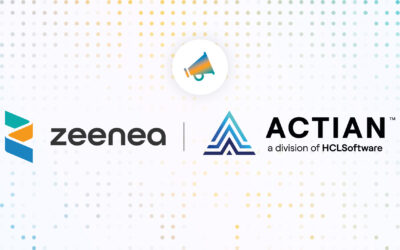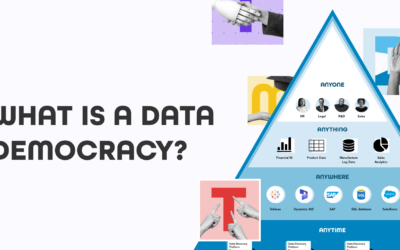Data Democracy
Data democratization refers to making a company’s data widely accessible to the greatest number of people, if not to all.
This freedom of access offers a great number of opportunities to create value from their data for the company; it provides each employee, at their level, to use all accessible and compatible resources within their needs in order to produce value locally.
Balancing rights and duties in a data democracy
Just like the government system, a democracy must have rules. These rights only work if regulations,processes and roles are defined.
Hence, this democratic approach to data presents an interesting challenge to balance: on one hand you must ensure that the right to use data can truly be exercised, and on the other you must counterbalance this right with a certain number of duties.
Data citizens rights
This right that grants employees to use an organization’s data for their own activities is only tangible from the moment that they have the information to identify and localize the data they may need. It is thus essential for enterprises to deploy a system that allows them to:
![]()
Reference managed data within the company
![]()
Know the meaning and context of their data
![]()
Judge the sensitivity of their data and the limits of their usage
![]()
Know where to find data and how to access it
![]()
Have information on the quality and reliability of their data
![]()
Identify any other employee interested in or working directly with their data
![]()
Know who to contact for any information, question or comment on their data
Data citizens duties
In return for the rights mentioned above, employees must also be made aware of the responsibilities that they must assume when they wish to make use of their data.
The main responsibilities that a company has the right to request could be to:
-
 Conform strictly to the regulations linked to data usage, particularly relating to the sensitivity of information, to various regulations or even ethics.
Conform strictly to the regulations linked to data usage, particularly relating to the sensitivity of information, to various regulations or even ethics. -
 Contribute to the continuous improvement of data knowledge.
Contribute to the continuous improvement of data knowledge. -
 Share all data produced.
Share all data produced. -
 Assist any employee on a known dataset.
Assist any employee on a known dataset.

Constructing a data democracy
The main element in implementing a democratic culture rests upon the understanding that data is a high-value and collective asset for an enterprise.
Too often, data is still considered a local asset and not a global one. In an enterprise where data is democratized, it will no longer be possible to refer to the notion of “Data Owner” in the same way since the owner of data is the company itself.
This democratization must be supported and simplified by providing tools that enable everyone to find the necessary information. That is the main objective of a data catalog, which must, even more so than its basic function (referencing data and associated metadata) offer simplicity of use in order to navigate through an ocean of information.
A data catalog focuses on knowledge, regulations, and the knowledge of interlocutors associated with the company’s data, and becomes a central data discovery platform, a unique and universal reference point for all employees.
Listen to The Data Democracy Podcast
Presented by Ole Olesen-Bagneux, author of ‘The Enterprise Data Catalog’ (O’Reilly)
Learn more about Data Democratization









